UCL in 2023: a year in review
22 December 2023
The year 2023 has been one of innovation, growth and achievement across UCL, with the launch of the new UCL East campus, a visit from the Queen, and the accolade of being named University of the Year by the Times and Sunday Times.
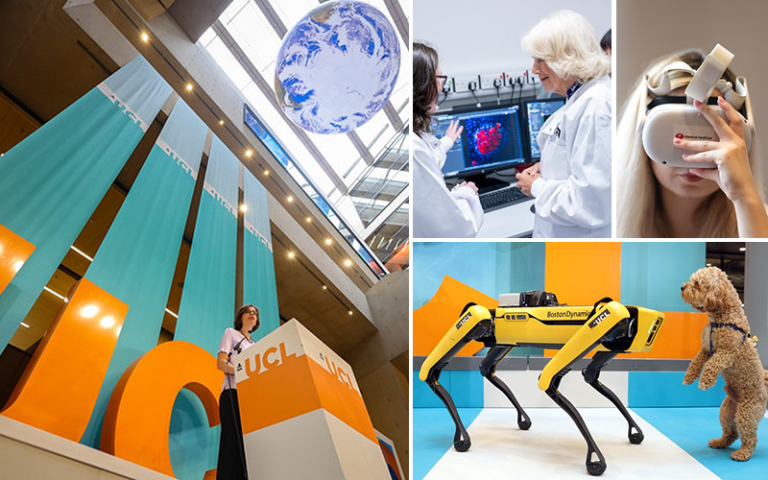
From leading medical breakthroughs, to providing expert evaluation on issues such as climate change, public health and inequalities, UCL continues to be a world-leader in multidisciplinary research.
We look back at some of the highlights of the past 12 months and reflect on how UCL is making an impact in the UK and beyond.
January
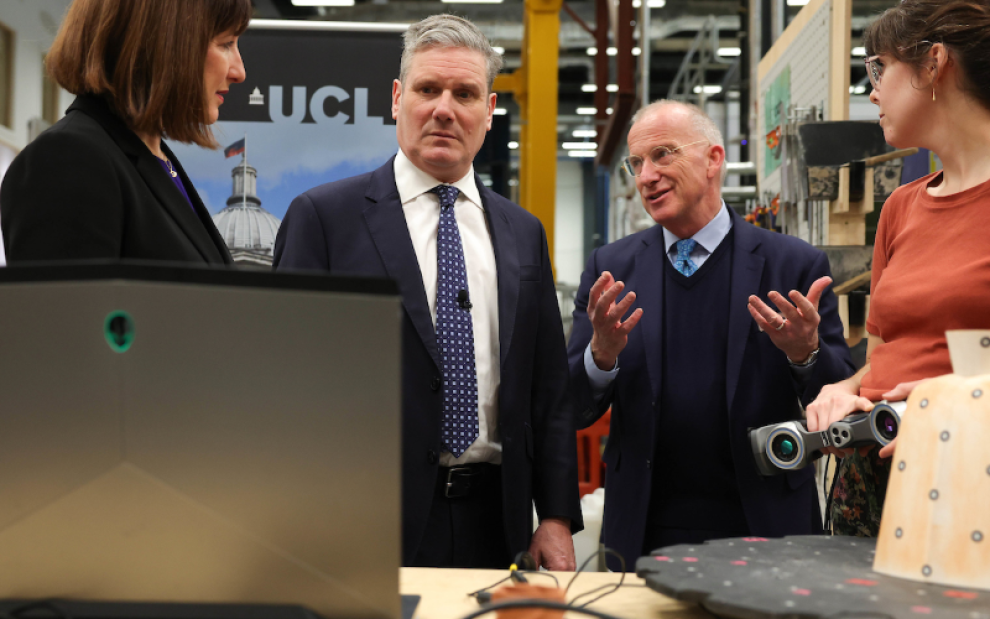
UCL kickstarted the year with a visit from Sir Keir Starmer, who gave his first major speech of 2023 at UCL Here East, on the topic of “national renewal”. The Leader of the Opposition talked about the importance of research and higher education to economic growth.
He also witnessed how UCL is hoping to deliver a more sustainable construction industry by developing new materials that may help the UK achieve Net Zero.
UCL’s dedication to a green future was further emphasised, as academics in the UCL Energy Institute announced plans for a new £8.7million project co-led with the University of Oxford to help reach net-zero.
And for those hoping for a healthy start to the new year, motivation was provided by researchers from UCL’s Institute of Epidemiology & Health, as a study led by PhD candidate John Mitchell found that undertaking between six to seven minutes of moderate or vigorous physical activity (MVPA) every day could improve cognitive performance in mid-life.
February
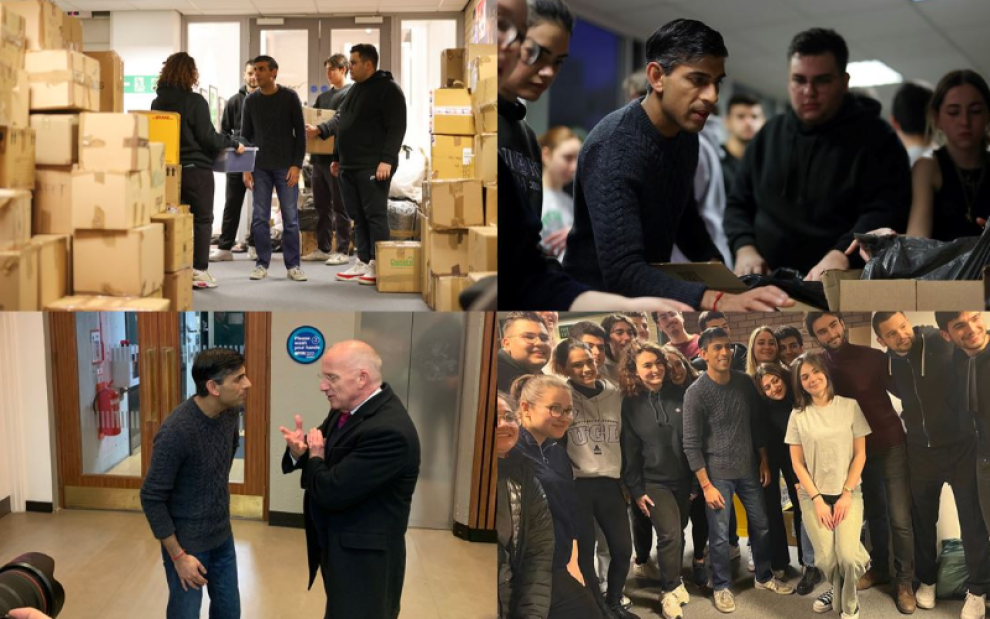
The philanthropy of the UCL community was highlighted in February, as Prime Minister, Rishi Sunak, made a surprise visit to UCL to help students fundraising for the Turkey-Syria earthquake relief effort. The campaign was launched by the UCL Turkish Society, with the Students’ Union UCL, to provide clothes, blankets, tents and baby food for the devastated families and communities living along the Turkey and Syria border.
Moreover, a year on from the start of UCL’s Academic Fellowship Scheme for displaced Ukrainian scholars, academics who benefited from the programme shared their experiences of how it was enabling them to advance with their studies.
On the research front, scientists at the UCL Cancer Institute and UCL Institute of Health Informatics discovered a possible mechanism to explain the link between head injuries and brain cancer.
Researchers from UCL’s Department of Medical Physics & Biomedical Engineering used new fibre optic technology to test for heart disease, for the first time.
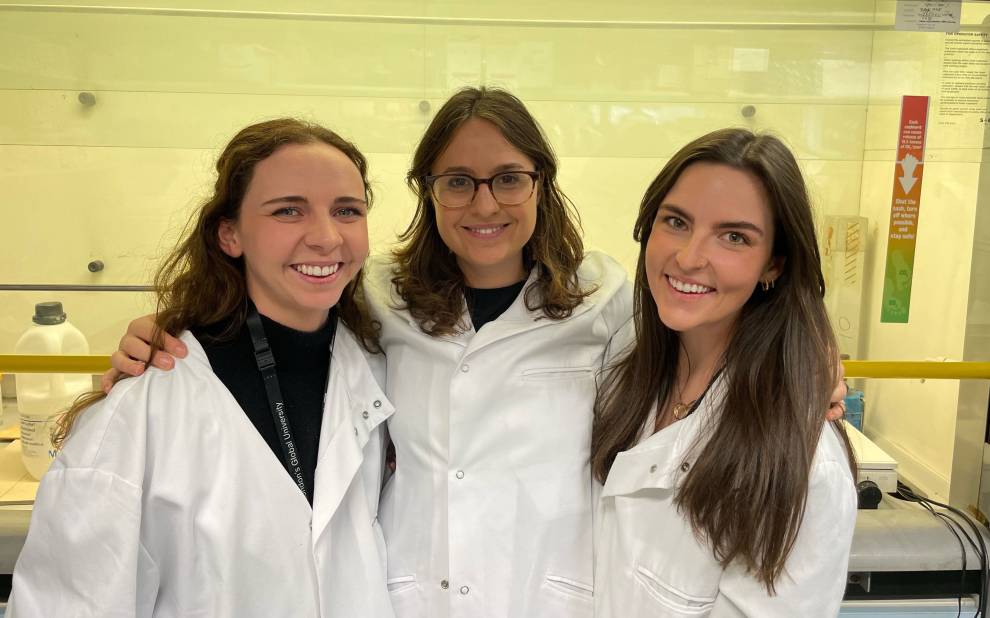
And the BoobyBiome team of UCL researchers across UCL Chemistry, UCL Biosciences, and UCL Great Ormond Street Institute of Child Health showcased their mission to improve babies’ health by creating a supplement that can replicate the health benefits of breast milk.
Co-founder, Dr Sioned Fon Jones, explained: “We are driven by a hope for a healthier future for infants everywhere. Our goal is to create products that are based on the latest scientific discoveries and that provide real benefits to infants and families.”
March
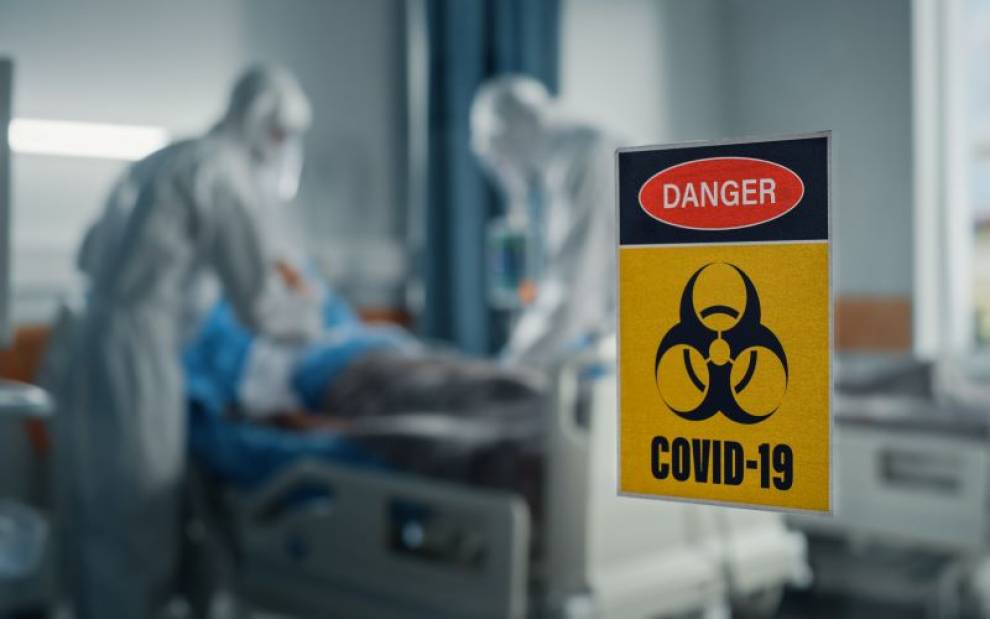
Three years on from the start of the pandemic that shook the world in 2020, Jonathan Breckon (IOE, UCL’s Faculty of Education and Society) stressed the importance of addressing the lasting effects of Covid on the nation.
And PhD researcher, Dave Cook (UCL Anthropology), reflected on how the Covid-induced rise in remote working was affecting society, encouraging gentrification and potentially pricing out local communities worldwide.
Looking towards the future, new threats were also catching the attention of UCL academics, including a rise in unexpected hepatitis cases among children since 2022 and stark warnings from the IPCC Synthesis Report about climate change on the use of fossil fuels and our “rapidly closing window of opportunity” to secure a liveable future.
April

Digital wellbeing dominated in April, as scientists assessed how technology can impact both physical and mental health.
The benefits of wearable devices were highlighted by a team of researchers, led by Dr Michele Orini (UCL Institute of Cardiovascular Science), as it was found that smart watches could help detect a person’s risk of developing heart failure and irregular heart rhythms in later life.
Meanwhile, a separate paper from academics at UCL’s Institute of Epidemiology & Health and the UCL Division of Psychiatry, looked at the impact of social media on the mental health of teenagers. Unlike previous reviews, the new research discovered that online sites such as Instagram and Facebook were unlikely to cause mental health problems in adolescents – showing a more “complex relationship” between the two.

New technology was also deployed by researchers from UCL’s Department of Chemical Engineering, who worked with the Royal British Legion to assess a new plastic-free Remembrance poppy, finding that it produces 40% less carbon emissions over its lifetime than the previous plastic design.
In the UCL Faculty of Laws, a new landmark study also looked into the legal failings associated with the Post Office scandal.
May
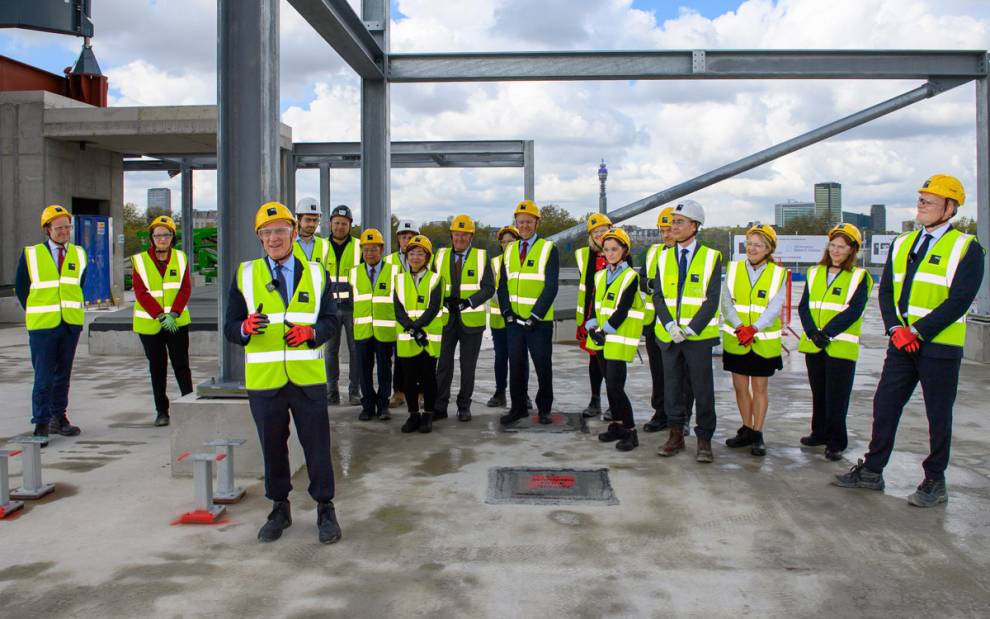
May was a month of new beginnings, which saw the coronation of King Charles III and the ‘topping out’ of the new centre of excellence for UCL Neuroscience on Grays Inn Road.
When it opens in 2025, the first-of-its-kind centre will bring together clinical work and research – housing up to 1,000 scientists, clinicians and patients from the UCL Queen Square Institute of Neurology; the UK Dementia Research Institute; and the UCLH National Hospital for Neurology and Neurosurgery (NHNN) - with the aim of accelerating the discovery of treatments for neurological conditions, including dementia.
Professor Alan Thompson, Dean, Faculty of Brain Sciences, said: “The new UCL building at 256 Grays Inn Road has been an ambitious project, long in the making and it is wonderful to see it finally coming to fruition.”
June
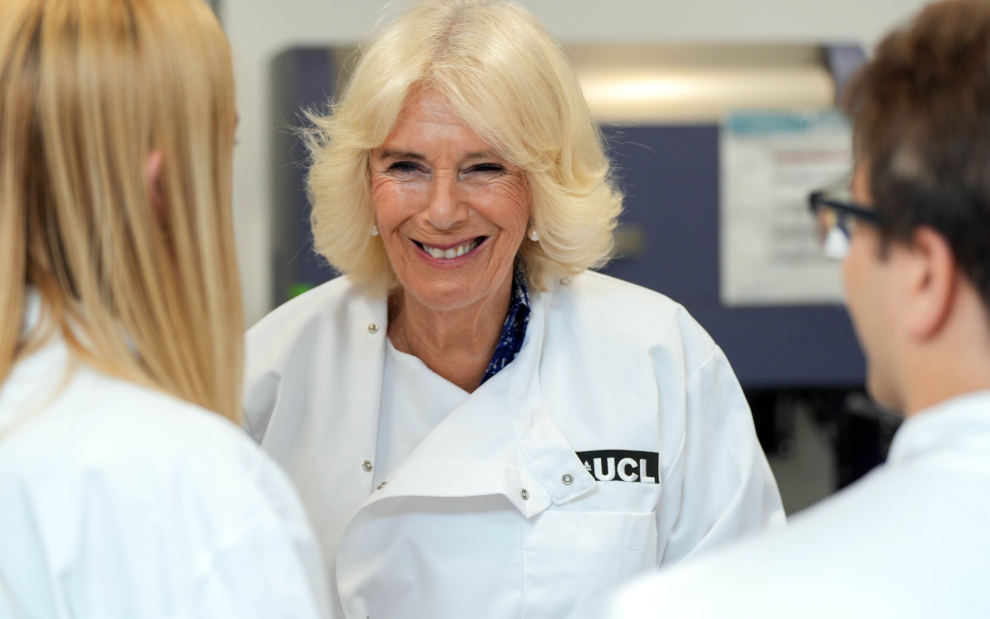
UCL had a royally good month in June, with a visit from Her Majesty The Queen at UCL’s Institute of Immunity and Transplantation, and the recognition of a number of UCL staff and alumni in the King’s Birthday Honours. The university was also ranked in the top 10 universities in the world for the 12th year running, in the 2024 QS World University Rankings.
The success of UCL researchers was also demonstrated as Quell Therapeutics, a biotechnology company that was founded and spun out by Professors Emma Morris and Hans Stauss (UCL Institute of Immunity & Transplantation), joined forces with AstraZeneca in a $2billion deal. And the UCL Institute of Innovation & Public Purpose (IIPP), founded and led by economist Professor Mariana Mazzucato, celebrated its fifth anniversary.
Ahead of the FIFA Women's World Cup, UCL Women's FC launched a new volunteer project to encourage girls to play football from an early age. Third year student, Lily, who is one of the leaders of "Girls Can Kick", said: “I think it’s really important that girls come to see that sports can be a part of their life and that being athletic and playing sports is something that can be just as rewarding and valuable for women as it is for men.”
Research highlights included a study that proved regular napping may help preserve brain health; research that showed LGB adults were more than twice as likely to experience suicidal thoughts or self-harming behaviours; and a paper that found Long Covid can impact sufferers worse than some cancers.
July
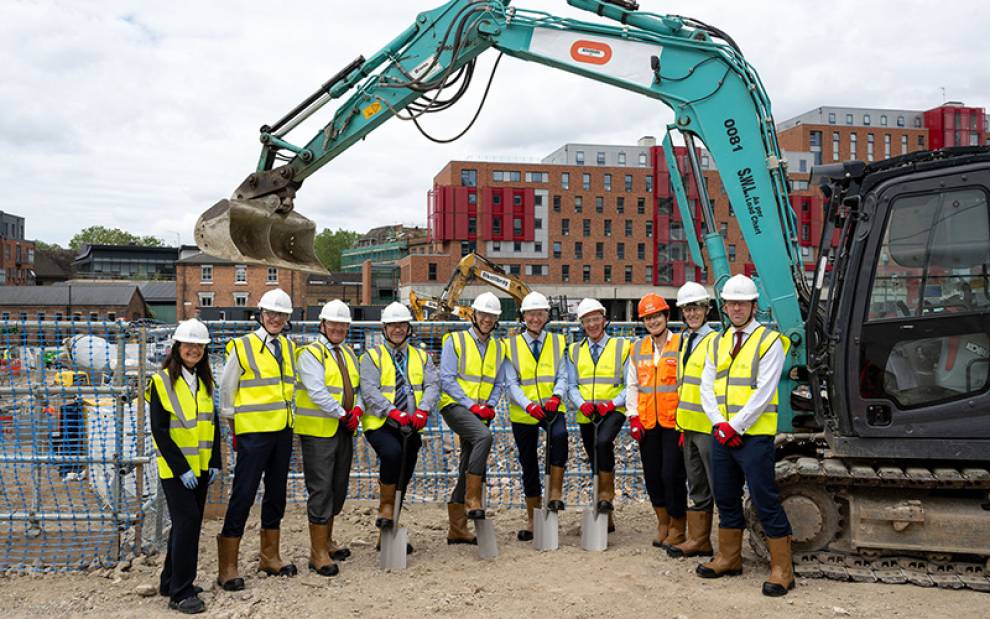
In the month that the NHS celebrated turning 75, UCL academics spearheaded a number of medical advances, including a special event to mark the start of construction for the new eye health centre, Oriel.
Research led by academics in UCL Mechanical Engineering, discovered that bandages infused with a protein that occurs naturally in cow’s milk, could significantly speed up the healing of wounds. And there were warnings over the UK’s cosmetics industry, as it was found that two in three cosmetic surgery injections – such as Botox – are not administered by doctors.
Additionally, a review carried out by researchers in UCL’s Institute of Epidemiology & Health Care, showed that there had been a significant rise in ADHD diagnoses in the UK over the past two decades, leading to calls for GPs to have better support in prescribing and monitoring these medications.
Other research highlights included findings from the UCL Centre for Climate Change & Sustainability Education, that teaching climate change in more subjects would empower young people to take action, and results from excavations carried out by academics from UCL Archaeology South East, who discovered some of the largest early prehistoric stone tools in Britain.
There were also 10th anniversary celebrations for the UCL Centre for Access to Justice, with an event at Bentham House.
August
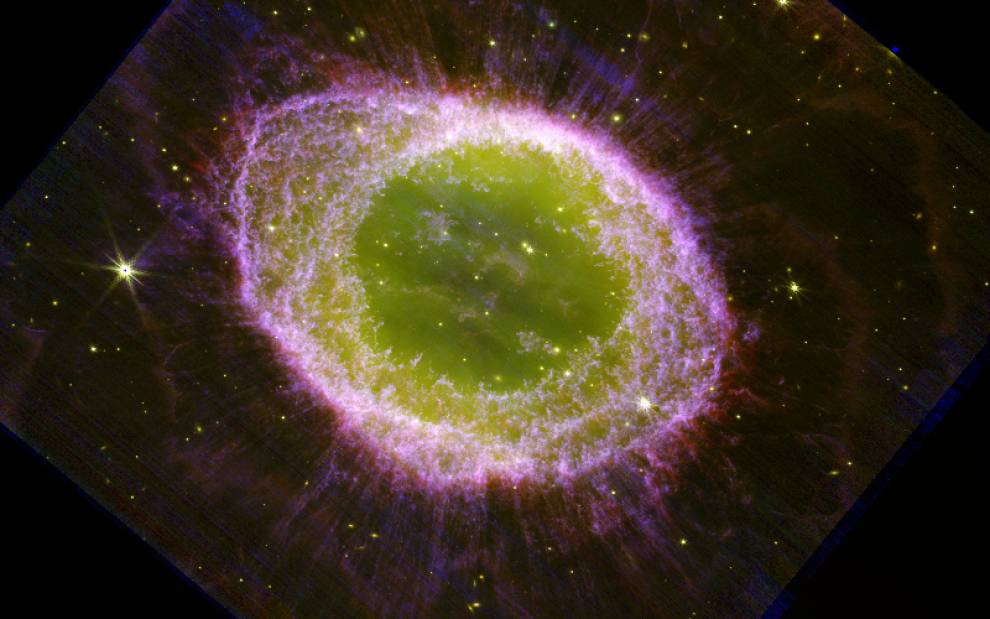
Innovation and technology sparked interest across all corners of UCL in August. The James Webb Space Telescope (JWST) captured stunning new images of the iconic Ring Nebula in Lyra in “never seen before” detail, thanks to a team led by Professor Mike Barlow (UCL Physics and Astronomy).
Meanwhile, new scanning techniques for the diagnosis of both prostate cancer and Parkinson’s disease, were found to be successful.
And academics from the UCL EGA Institute for Women’s Health, UCL Institute for Global Health and UCL Medical Sciences announced plans for the UK’s first menopause education programme – an “exciting new project” set to ensure that “all women get the information they need to manage the changes they experience in this part of their life, in the best possible way.”
September
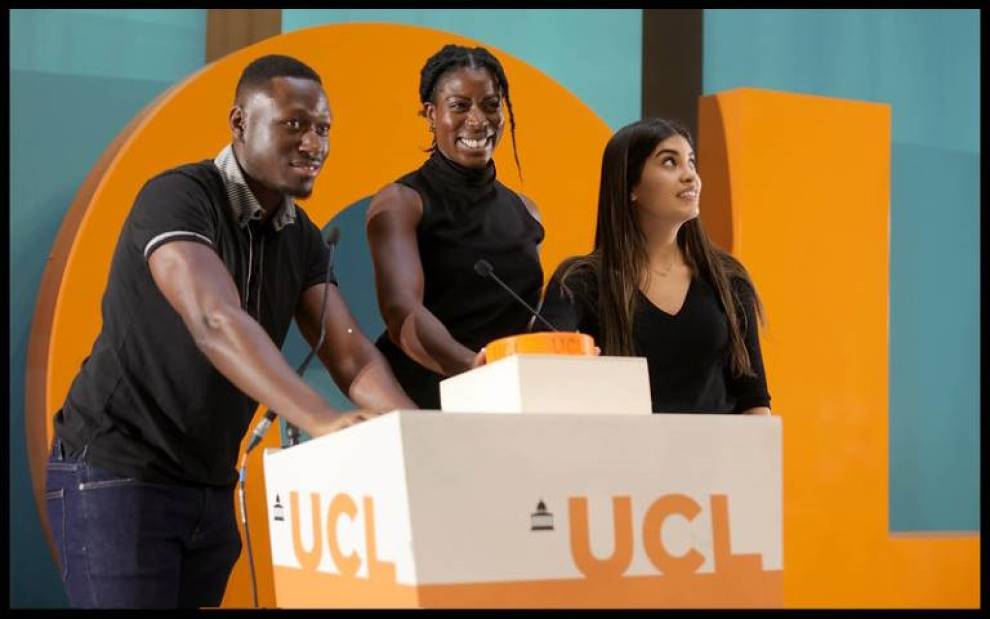
In the month that UCL officially opened its new east London campus, and was awarded University of the Year 2024 by the Times and Sunday Times Good University Guide, it was also named as one of the country’s top universities for knowledge exchange, in Research England’s Knowledge Exchange Framework (KEF) 3 results.
This impactful research was amplified throughout September, as a result of World Alzheimer’s month, as David Cameron visited the new centre of excellence for UCL Neuroscience and a team of researchers led by Professor Bart De Strooper (UK Dementia Research Institute at UCL, and VIB-KU Leuven) discovered how neurons die in Alzheimer’s disease.
Meanwhile, UCL students achieved the highest number of Millennium Fellows in Europe - with 40 undergraduates being selected for the initiative in 2023-24.
October
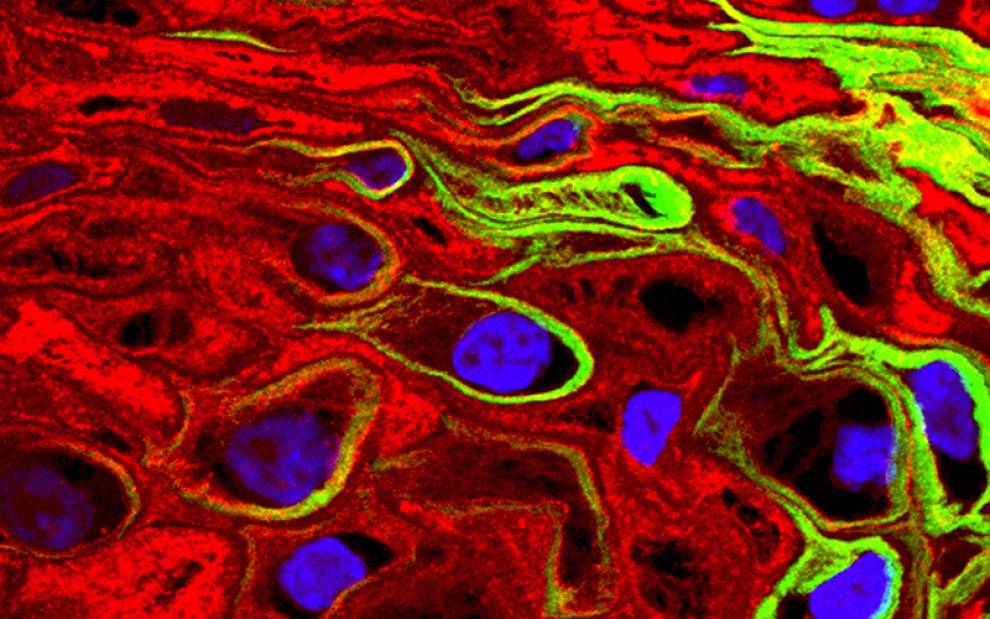
Throughout October, all eyes were on the current conflict between Israel and Hamas, and several UCL academics were able to provide their expert opinion as the situation unfolded, including Dr Anne Irfan (UCL Arts & Sciences) and Dr Julie Norman (UCL Political Science).
Elsewhere, researchers published studies on other pressing global priorities, including dementia and cancer – with one new study by researchers in UCL Institute of Epidemiology & Health Care, revealing that the number of dementia cases could be 42% high than previously estimated by 2040; and another paper, led by UCL Cancer Institute, showing that a course of treatment with existing drugs prior to chemoradiation could lead to a 35% reduction in the risk of death or return of cervical cancer.
And students focused on international relations as UCL hosted the inaugural EU-UK youth gathering, which brought together more than 120 students to discuss the primary challenges facing today's young people and share perspectives on EU-UK relations.
November
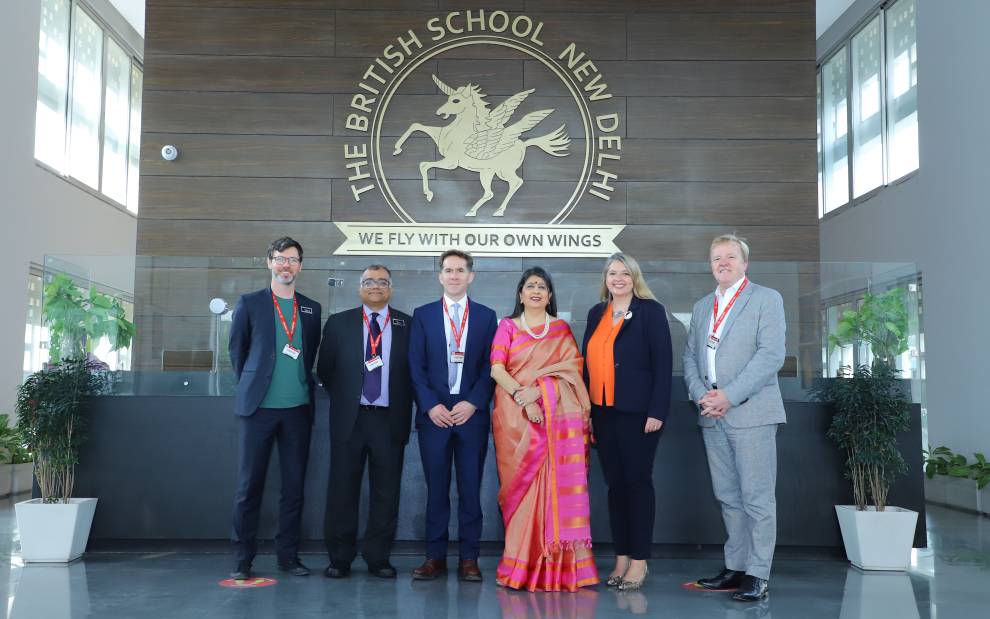
As world leaders gathered in Dubai for the COP28 summit, UCL experts were on hand to provide commentary and evaluation of negotiations.
The lead up to the conference, saw the latest Lancet Countdown report, led by UCL researchers, which warned that delayed action on climate change is costing lives and livelihoods – including an estimated 4.7-fold increase in heat related deaths by mid-century.
Further research showed that faster warming in the Arctic will be responsible for an early increase in global temperatures, and that people are beginning to reconsider their reproductive choices as a result of concerns about climate change.
UCL also highlighted its commitment to its global community, with a new scholarship scheme to enable India’s brightest students to study in the UK and the launch of a Summer School for students in the country.
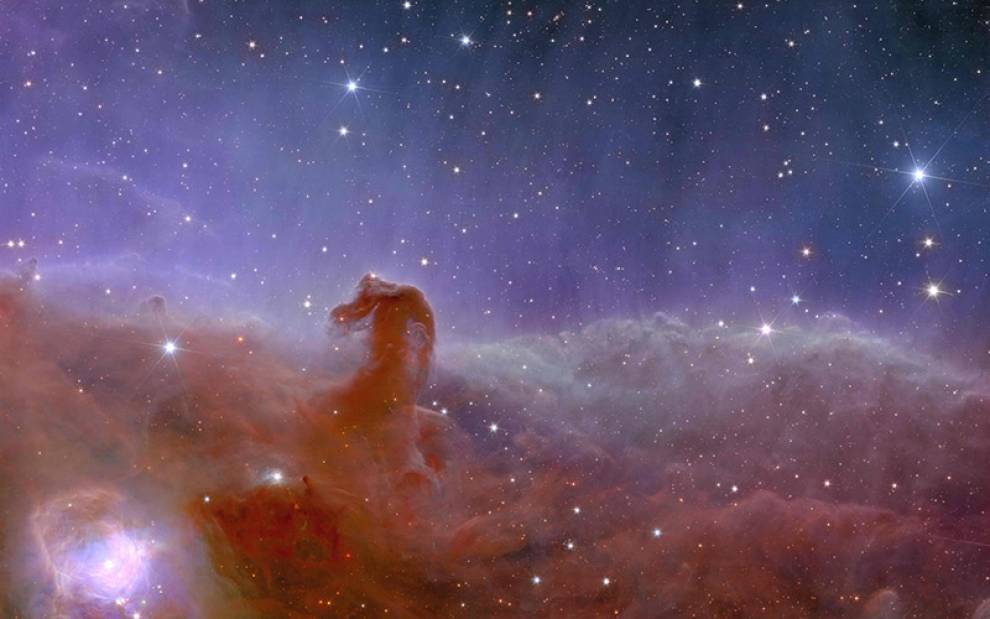
More international collaboration came to fruition, as the European Space Agency (ESA) mission Euclid, whose massive optical camera was built by a team led by researchers at the Mullard Space Science Laboratory at UCL, released its first full-colour images of the cosmos.
And, in East London, UCLB celebrated its 30th anniversary in October with a visit from Jeremy Hunt, the Chancellor of the Exchequer, to mark the publication of the Independent Review of University Spinout Companies. While another high profile visit from the Attorney General took place at the UCL Faculty of Laws.
December
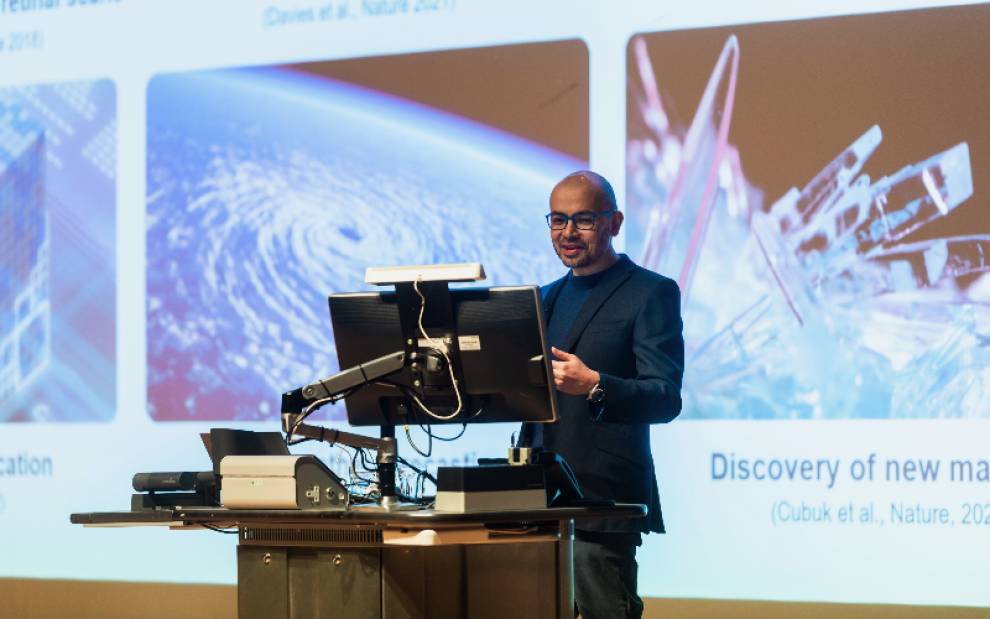
As the year comes to a close, thoughts and research have turned to the future.
A sold-out keynote speech from Google DeepMind co-founder and UCL alumnus, Demis Hassabis CBE, at the 2023 UCL Prize Lecture in Life and Medical Sciences, explored the development of artificial intelligence and how – when built responsibly – it can benefit humanity.
In health, a promising new gene therapy was proven to be successful in significantly reducing seizures in a devastating form of childhood epilepsy in mice – giving hope to thousands for the future. And a re-usable vest that can map the electrical activity of the heart has been developed with the hope of identifying people at high risk of sudden cardiac death.
Celebrations were had at the UCL Slade School of Fine Art, as UCl alumnus, Jesse Darling, won this year's Turner Prize for his evocative exploration of societal breakdown in modern Britain.
And, with the next UK general election on the horizon, a paper involving Dr Fergus Green (UCL Policial Science), argued that it is possible for political parties to craft popular climate policy – without political risk.
Alongside more groundbreaking research, 2024 will see the biggest election year in history, with votes taking place in 40 countries, alongside other global events such as the Paris Olympic and Paralympic Games and a total solar eclipse. UCL has experts in all areas willing to share their expertise on a range of additional topics via the UCL Find an Expert database.
For any additional information please get in touch with UCL Media Relations on +44 (0)7747 565 056 or out of hours +44 (0)7917 271364.
Images (top to bottom)
- UCL East Official Opening at Queen Elizabeth Olympic Park. Credit: Andrew Parsons / Parsons Media
- left to right: Rachel Reeves, Shadow Chancellor, Sir Keir Starmer, Labour Leader, Dr Michael Spence, UCL President & Provost, and Claudia Toma, UCL Technician.
- Prime Minister Rishi Sunak visits UCL to show his appreciation and thanks to students for their efforts to support the Turkey-Syria relief effort. Photos top left and right: Credit: Simon Dawson / No 10 Downing Street on Flickr. Bottom left, the PM talks to UCL Provost, Dr Michael Spence, bottom right, group photo with UCL students.
- BoobyBiome team, L - R: Tara O'Driscoll, Dr Lydia Mapstone, Dr Sioned Fon Jones
- Credit: gorodenkoff on iStock
- Credit: iStock / Charnchai
New plastic-free Remembrance poppy. Credit: Royal British Legion
- UCL’s President & Provost Dr Michael Spence gives a speech at the topping out ceremony. Credit: UCL / Kirsten Holst
- HM The Queen with UCL researchers. Credit: Andrew Parsons Photography/UCL
- Left to right: Natalie Forrest (New Hospital Programme), Professor Andrew Dick (Director, UCL Institute of Ophthalmology and Oriel senior responsible officer for IoO), Professor Alan Thompson, Dr Martin Kuper, Lord Markham, Mervyn Walker (Chair, Moorfields Eye Charity), Dr Michael Spence, Fabienne Viala, Robert Dufton, and Jon Spence (Moorfields chief operating officer and Moorfields Oriel senior responsible officer) at the ground-breaking ceremony
- JWST/NIRcam composite image of the Ring Nebula. The image clearly shows the main ring, surrounded by a faint halo and with many delicate structures. The interior of the ring is filled with hot gas. The star which ejected all this material is visible at the very centre. It is extremely hot, with a temperature in excess of 100,000 degrees. The nebula was ejected only about 4000 years ago. Credit: NASA/ESA/CSA
- Peter Kanyike, Christine Ohuruogu OBE and Dr Dania Posso push the button to open UCL East. Credit: Andrew Parsons.
- Lesion in human cervical epithelium infected with human papilloma virus. Credit: NIMR, Francis Crick Institute. Source: Wellcome Collection.
- Vice-President (External Engagement) Kirsty Walker, Vice-Provost (Research, Innovation & Global Engagement) Professor Geraint Rees and UCL colleagues with Director of The British School New Delhi, Vanita Uppal OBE, at the launch of UCL's first Summer School in India
- Credit: ESA/Euclid/Euclid Consortium/NASA, image processing by J.-C. Cuillandre (CEA Paris-Saclay), G. Anselmi; CC BY-SA 3.0 IGO
- Demis Hassabis. Credit: James Tye
Media contact
Poppy Tombs
E: p.danby [at] ucl.ac.uk
 Close
Close

